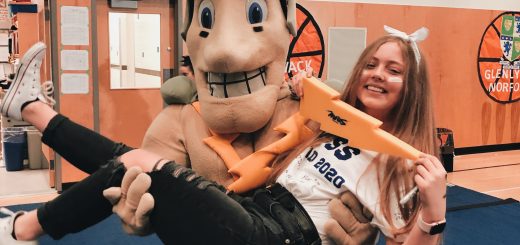How to Use Critical Reflection for Next Semester
Whenever I come across certain challenges or problems in my own life (such as last semester) it’s really tempting to simply avoid them. However, I find that more often than not, running away from these issues only leads to more issues. Funny how that works, huh? It reminds me of my middle school dodgeball games, in which I ended up getting beamed in the face every time I tried to avoid getting beamed in the face.
Luckily, I recently gained a valuable skill this past semester through one of my classes. It’s called critical reflection and has completely changed the way I think about difficult situations.
Critical reflection is essentially taking a certain experience, breaking it down into more manageable portions, and deeply reflecting on each of those portions.
The process of doing so not only helps build a better understanding of the event itself, but can also help with establishing a plan for similar situations in the future.
Although there are many great frameworks out there, I typically use Gibbs’ Reflective Cycle. This framework consists of six phases that can be used to guide your critical reflection. Here is each phase with one of my own experiences as an example (my reflection has been simplified significantly for the sake of keeping this post short):

Gibbs’ Reflective Cycle in a nutshell.
1. Description – What happened?
This past semester, I was fully aware of how beneficial study groups can be and wanted to attempt to set at least one up. However, I did not end up doing so.
2. Feelings – What were you feeling or thinking?
I was scared to be the one to initially put the request out there because I started a new program and didn’t know anyone in my classes.
3. Evaluation – What was good and what was bad?
The semester ended up going well academically, but I had a really hard time meeting new people.
4. Analysis – What sense can you make of the situation?
I believe that my perspective of others played a large role in this. I wasn’t sure if my classmates would see me in a more positive light, or a more negative light as a result of the suggestion.
5. Conclusion – What did you learn?
I learned that communication exclusively online is way more difficult than I thought it would be, especially when you don’t know anyone initially. I also realized that this situation was 100% my own fault.
6. Action Plan – What can you do the next time?
For next semester, I could possibly try to ask one or two people individually first before reaching out to my whole class. For instance, I could ask a couple people from my smaller lab group.
It might seem like an excessive amount of work at first, but the process of writing down my thoughts for each of these phases has done wonders for me. Sometimes, it just takes that one little insight to get the ball rolling.




